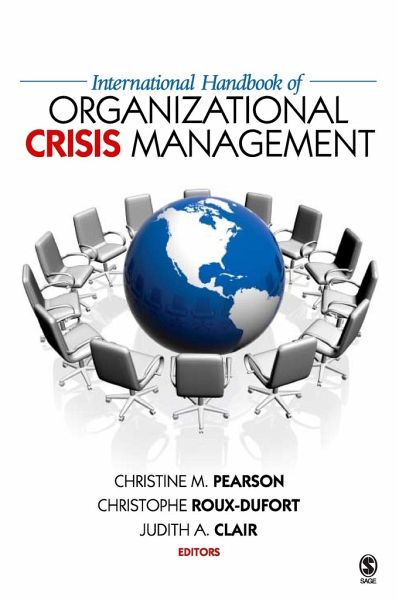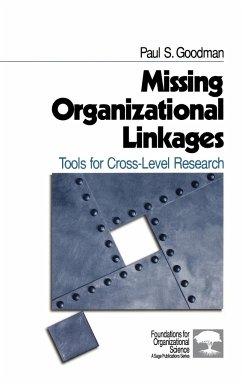
International Handbook of Organizational Crisis Management
Versandkostenfrei!
Versandfertig in 1-2 Wochen
162,99 €
inkl. MwSt.

PAYBACK Punkte
81 °P sammeln!
Best-managed crises can bring positive recognition and enhance an organization's value; worst-managed crises can snuff its viability. Numerous books have been written on the topic, but many lack rigor: prescriptions are untested and quick fixes are based on elevating the readers' fears. The International Handbook of Organizational Crisis Management reflects the latest understanding of this field from prominent scholars and practitioners around the globe. Pushing the boundaries of crisis management research and practice, this book offers new frameworks and findings that capture insights and gui...
Best-managed crises can bring positive recognition and enhance an organization's value; worst-managed crises can snuff its viability. Numerous books have been written on the topic, but many lack rigor: prescriptions are untested and quick fixes are based on elevating the readers' fears. The International Handbook of Organizational Crisis Management reflects the latest understanding of this field from prominent scholars and practitioners around the globe. Pushing the boundaries of crisis management research and practice, this book offers new frameworks and findings that capture insights and guidance for researchers and executives. Today's crises require no less. Novel and poorly understood technologies, globalization, changing political climates, and a shifting social landscape are just a few of the forces currently changing the ways in which organizations experience crises. The International Handbook of Organizational Crisis Management is a grounded cross-section of informed perspectives, a leading edge overview of the field of crisis management that will be useful to researchers and thoughtful practitioners.














